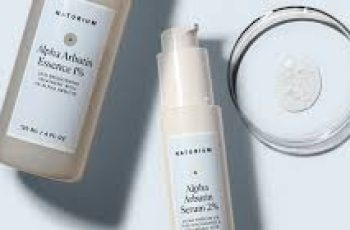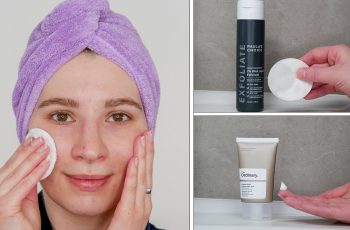
What do peptide serums do?
It seems like everyone is talking about peptides right now. They’re the center of attention, but interestingly they’re not a new ingredient. In fact, peptides have been included in various formulas since the 1920s and have been praised for their many benefits to the skin. From anti-aging properties to ensuring a strong and functioning protective barrier.
Despite their effectiveness on the skin, peptides can only offer certain skin care benefits. So with that in mind, let’s take a closer look at what peptide serums do, and what results you can expect when incorporating this powerful ingredient into your daily skincare routine.
How often should I use a peptide serum?
This largely depends on your daily routine and skin type. If you want my advice, consistency is key, so using a peptide serum as often as possible will quickly see results. You’ll find many different formulas that contain active peptides, including face washes, cleansers, moisturizers, masks, and serums. This is an advantage for many of us because it gives us the opportunity to decide which product is right for our skin type and fit it into our daily care routine as easily as possible. If you want to reap these benefits, many skin care experts recommend serums as the best formula because they stay on the skin longer and provide the best results.
Are peptides better than retinol?
Yes and no, it really depends on your skin type, which will determine the best ingredient for you. For those with dry skin types that tend to be sensitive, it’s best to avoid retinol. This is because it has an extremely drying effect on the skin and can cause severe irritation. However, if you have combination or oily skin, you can often effectively enhance your skin’s tolerance by combining peptides and retinol in your nighttime routine.
Keep in mind that if you are unfamiliar with either ingredient and have never tried a particular product before, you should consult a doctor or dermatologist.
Do I need peptides in my skin care routine?
Yes, it makes sense to incorporate them into your daily routine. With their unique ability to fight the signs of aging, they act like little messengers once they are applied topically to the skin. By communicating with skin cells in the subepidermal layer, they can boost collagen production, making the skin appear smoother, firmer, and more youthful.
Peptides are also very effective when combined with other active skin-strengthening ingredients. Many people find that they produce better results when used with other products than when used alone. How you use peptides is up to you and your established skin care routine.
Do peptides really work for the skin?
The short answer is: yes, peptides do work for the skin. The longer, more complex answer is: there are proven scientific studies that show how peptides support the skin. The skin feels firmer, smoother, and more hydrated, and the skin’s natural barrier is fully functional and able to protect itself from free radical damage. However, the effects of peptides on the skin are still relatively unknown. In short, peptides are a very unique skin ingredient with amazing properties.
Can Vitamin C serums and peptides be used together?
Yes, you can, but be careful because Vitamin C is known for not working well with certain ingredients. Once you have performed a 24-hour patch test and determined that your skin is happy with the use of both Vitamin C and peptides, you can mix them. The cell-communicating properties of peptides combined with the antioxidants of Vitamin C provide you with a healthy and functioning skin barrier. Remember to closely monitor how your skin reacts to this two-potent combination, because even if you’ve been using it for a while, your skin may still suffer from unwanted side effects.
How long does it take for peptides to work?
This can vary from person to person, as everyone has different skin. Other factors, such as the percentage of active ingredients in the formula or the frequency of its use, also come into play. If you use peptide products regularly, you can expect to see results in 3 to 6 months. However, this doesn’t mean you won’t immediately notice the benefits of peptides, i.e. brighter, healthier, and more hydrated looking skin.
As I mentioned before, if you want fast results, you should opt for products that stay on the skin longer, like serums, moisturizers, and nighttime masks. Ideally, you should use peptide products twice a day, but if you only want to use them once, I recommend incorporating them into your evening routine. This allows the active ingredients to work on the skin undisturbed while you enjoy your beauty sleep, without being affected by free radicals.
Do peptides tighten the skin?
Yes, it is well known that peptides can tighten the skin. This is because they stimulate the production of collagen and elastin in the lower part of the skin. Over time, you’ll notice a reduction in signs of aging like fine lines and wrinkles, a smoother-looking complexion, and a noticeable improvement in previously sagging skin.
You’ll also notice a noticeable difference in the appearance of enlarged pores. This is because the peptides that boost elastin production prevent pores from becoming larger and clogged with impurities, which can lead to breakouts and acne.
I hope I’ve answered some of your questions today about what a peptide serum does and what it can do for your skin. Don’t forget to follow us on Instagram if you have any other skin care questions. See you then!


